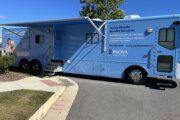The halfway point through the year is the perfect time to get your finances in order with a review of your retirement accounts. Financial planners say the market volatility surrounding the pandemic makes it especially important to do a midyear review.
Here’s how to get on the right track with your retirement portfolio:
— Make sure your risk level is appropriate.
— Check your diversification.
— Create and maintain an emergency fund.
— Check your beneficiary designation.
— Pause your required minimum distributions.
— Develop a budget and an income plan.
Make Sure Your Risk Level Is Appropriate
If you can’t sleep at night when your portfolio loses value, you are probably taking on too much risk with your retirement investments. “The recent drop from the peak, from bull market to bear market, was significant,” says Eric Bond, president of Bond Wealth Management in Long Beach, California. “If the drop (in your portfolio) was too much, you should get more conservative so you won’t lose as much in a correction.”
You may not fully understand your risk tolerance until you have experienced significant investment losses. “Now is a great time to assess risk,” Bond says. “When the stock market is doing well people forget about risk. When there is a shakeup and downturn, people will look at their overall investments.”
[Read: New Retirement Account Rules in Response to Coronavirus.]
Check Your Diversification
Holding different types of investments and setting up multiple income streams for retirement can help protect you from significant losses. “Think about your overall portfolio and sources of income. Pensions and Social Security are both fixed sources of income. Those are your conservative investments. You have a base,” says Pat Murphy, CEO of John Hancock Retirement Plan Services in Boston. “But because you expect a long life in retirement you need intermediate and long-term investments to continue to grow.”
Create and Maintain an Emergency Fund
While a retirement account can be used for unexpected expenses, you need to watch out for taxes and the early withdrawal penalty. A designated emergency fund allows you to avoid tapping your investments for a financial emergency. “You need an emergency fund that is separate from your 401(k),” Murphy says. “We are big advocates of having an emergency fund at all times.”
[See: How to Reduce Your Tax Bill by Saving for Retirement]
Check Your Beneficiary Designation
Check your beneficiary designations including the primary beneficiary and contingent beneficiaries. “A lot of the time people just put down the spouse,” Bond says. “When they started a job 30 years ago, maybe they didn’t have kids.” Bond lists his wife as his primary beneficiary. “If, God forbid, my wife dies, half goes to my son and half to my daughter,” Bond says. “Call human resources or your plan custodian and find out what happens at death and the default payout option.”
Pause Your Required Minimum Distributions
Retirees will be allowed to skip their 2020 required minimum distributions from 401(k)s and IRAs due to provisions of the CARES Act. “For people taking the RMD, if they don’t need the money, put a pause on it,” Bond says. “There is no downside.” If you decide later that you want or need the money, you can resume distributions. Postponing your required minimum distribution gives your investments time to recover before you resume withdrawals and allows you to delay paying income tax on the distribution.
[Read: How to Skip Your Required Minimum Distribution in 2020]
Develop a Budget and an Income Plan
Working people usually receive most of their income from a single job. “Throughout our life, whether we’re working for a big company or small, we know every two weeks we will have money in the bank,” says Morgan Hill, CEO of Hill & Hill Financial in Woodstock, Georgia. “We don’t have to worry about it. It’s good and it’s stable.” Budgeting becomes more difficult when you retire and have to depend on retirement accounts that are subject to the whims of the market.
Retirees often have several sources of income. “You should have a written income plan that looks at all of your steams of money, including Social Security, adjusted for inflation,” Hill says. Social Security is often the base of your retirement income, but also remember to include retirement account withdrawals, investment returns, pensions, annuities and potential income from a part-time job in your retirement budget. Check that your income will be enough to cover your essential retirement expenses. “Make sure your income is stable and guaranteed and can cover all your bills for the next 25 or 35 years,” Hill says.
More from U.S. News
The Financial Perks of Growing Older
10 Ways to Reduce Taxes on Your Retirement Savings
How to Max Out Your 401(k) in 2020
Your Midyear Retirement Finances Review originally appeared on usnews.com







